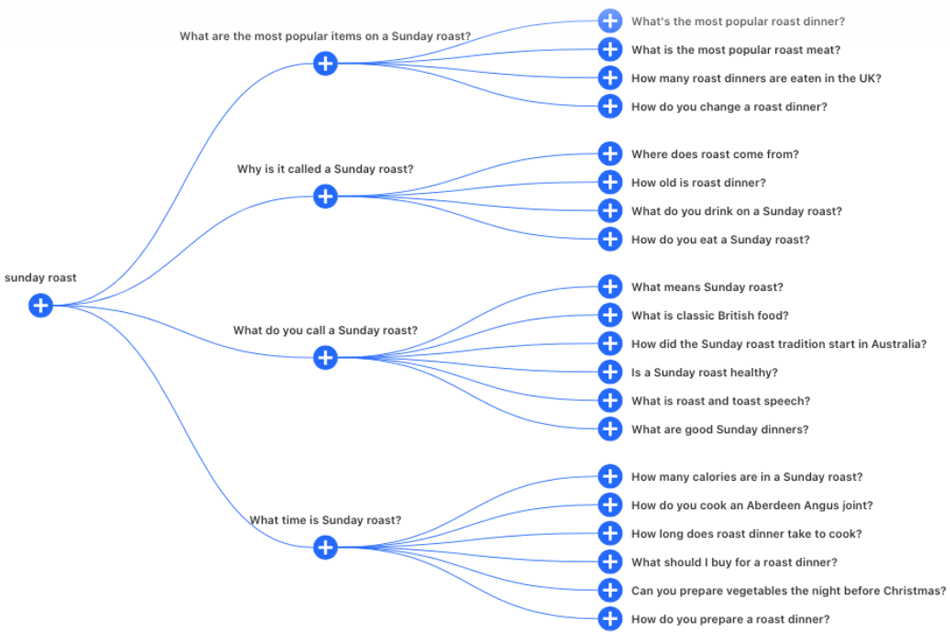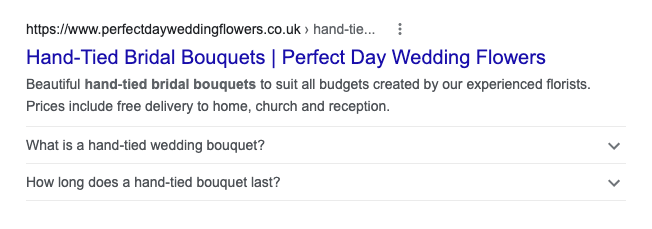Before we get to the real juicy bits, let’s just quickly say what FAQs are.
FAQ stands for Frequently Asked Questions. and they allow you to answer those questions that customers are always asking you, which leads nicely to the first and most obvious reason why you should be using FAQs on your website.
Table of Contents
1. It saves you and your customers time.
You’re busy and your customers are busy.
If you have a list of the most commonly asked questions about your business on your website, then your customers can immediately find out whether you provide what they need.
If you don’t tackle these questions head-on, they will either move on to a competitor that does or contact you by email to clarify points, which you will have to answer.
Whilst engaging with potential customers can be beneficial and build trust, if these questions are simple to answer, doing so on your website frees up time for both of you and produces a better customer experience.
And we all know by now that Google loves and rewards a website that offers a good customer experience.
2. Overcoming obstacles to purchase
Whether you’re selling services or physical goods, you will always have to tackle customers’ objections to completing the sale.
With the amount of competition out there these days, it’s difficult enough to get people onto your site. It’s important therefore to convert those visitors who do make it into customers.
FAQs can play a big part in conversion rate optimisation (CRO), if done correctly.
When the visitor lands on your website, they’re probably trying to come up with any number of reasons why they should not buy your product or service.
- too expensive
- too complicated
- too risky
- not urgently needed
- not trustworthy
- not the best
And so on and so on.
Whilst FAQs can’t solve all of these doubts, full and rich answers can overcome a lot of these concerns.
3. Provide additional content for your web pages
I’ve dealt with a lot of clients over the years and one issue that I often come up against, is the difficultly they have in writing content for their website.
Whilst I will always do the best I can to help all my clients with content creation, they are the experts in their field. They have the knowledge – they often just need a way to structure that knowledge.
As part of the SEO process, I conduct keyword and competitor research and will come up with keywords and content ideas that will hopefully drive a bunch of highly targeted traffic to your website.

Tackling visitor’s concerns and objections directly with FAQs can not only provide lots of content for your page but can also give it structure.
4. Prove you’re an expert in your field
Google loves authoritative websites that are focused on helping people to get all the information to take an educated decision on product choices.
Whilst simple FAQs around price, size, weight, shipping, delivery options or project durations are great and necessary, go the extra mile and prove that you’re an expert in your field.
- provide and answer questions that your visitors might not have even thought about
- tackle issues that are a little niche and convert visitors with those concerns into customers
- demonstrate that you know your subject inside out
For a recent website I built for Rachel Sharp Rehab, we made extensive use of FAQs to tackle the conditions she treats. If, like me, you’ve ever suffered from back pain, then the FAQs on her Back Pain page might be really useful in deterring whether you need to book a consultation.

5. Improve your search engine listing
Adding structured data to your FAQs is a good way of not only providing content for Google to crawl in a way that it loves, but can also give you an advantage on the search engine results page (SERP), which will give you a higher average click-through rate (CTR), and help you to pull ahead of your competition.
For another website I recently built, Perfect Day Wedding Flowers, some of the FAQs on the product pages are highlighted in the search results and immediately make this link more appealing than those around it.

The holy grail of FAQs, is to get featured in one of Google’s ‘rich results‘ or ‘search result features‘.
These will show towards the top of the SERP and, whether this is a Featured Snippet, the Knowledge Panel, in an FAQ or People Also Ask, they can really demonstrate your website’s authority.
The ‘People also ask‘ feature, shown below, can also provide a great source of FAQs for your website, which is something that we will look at in another article on where to find and implement FAQs on your website.








